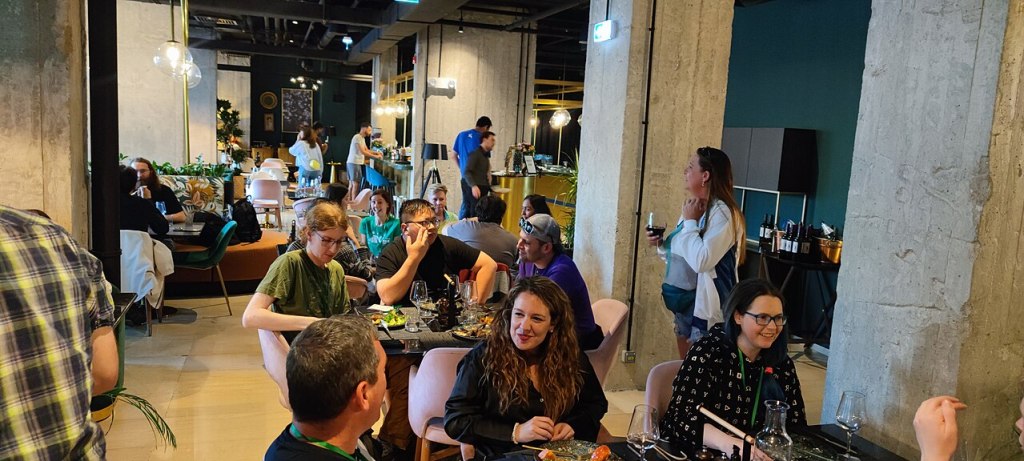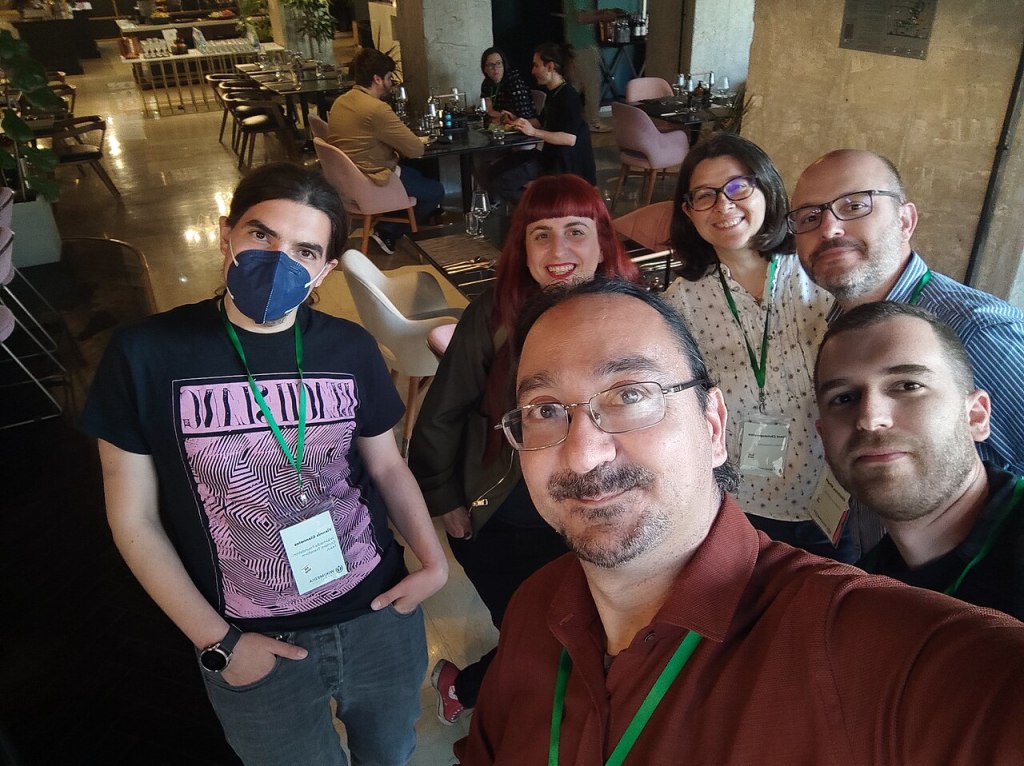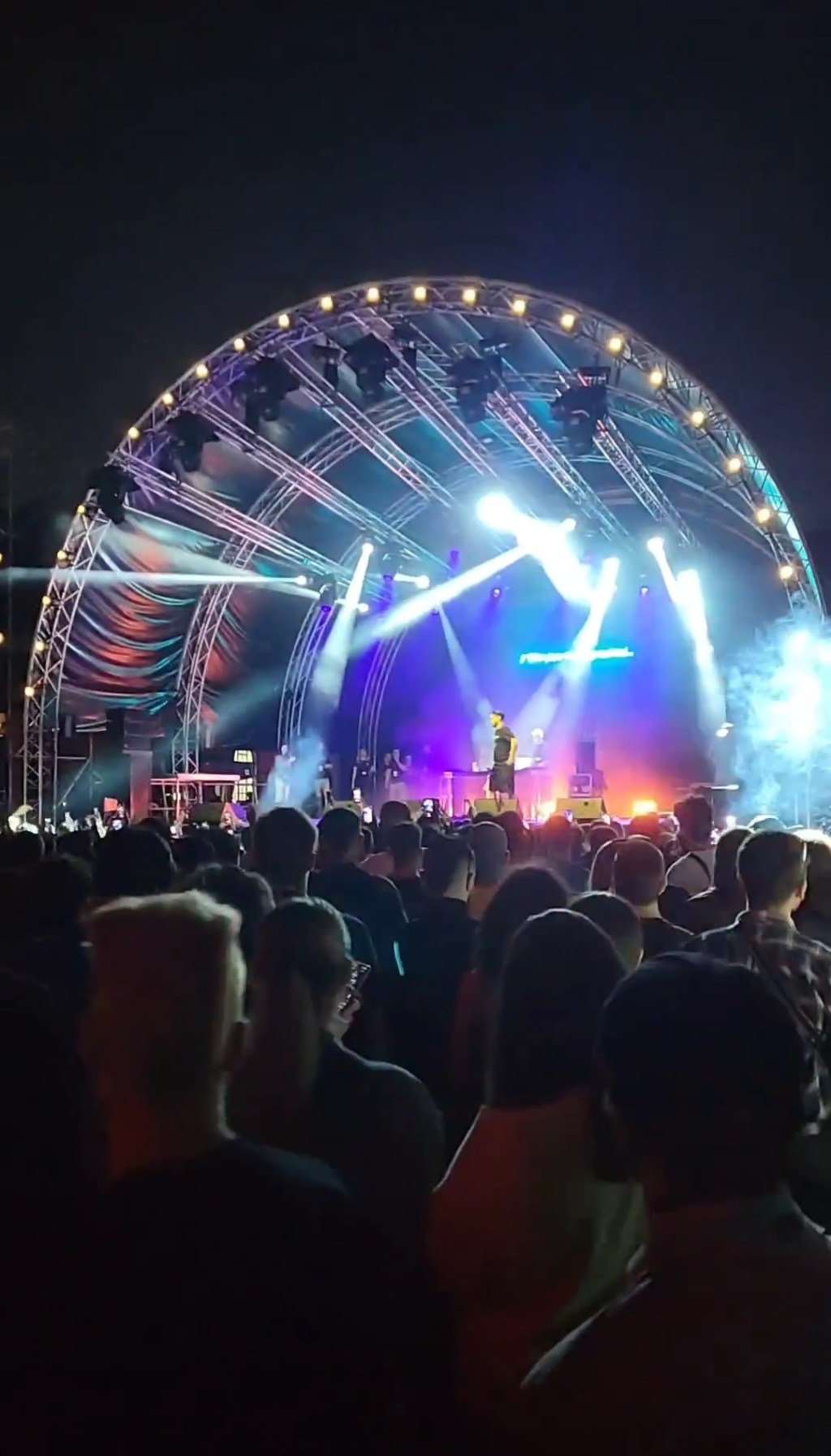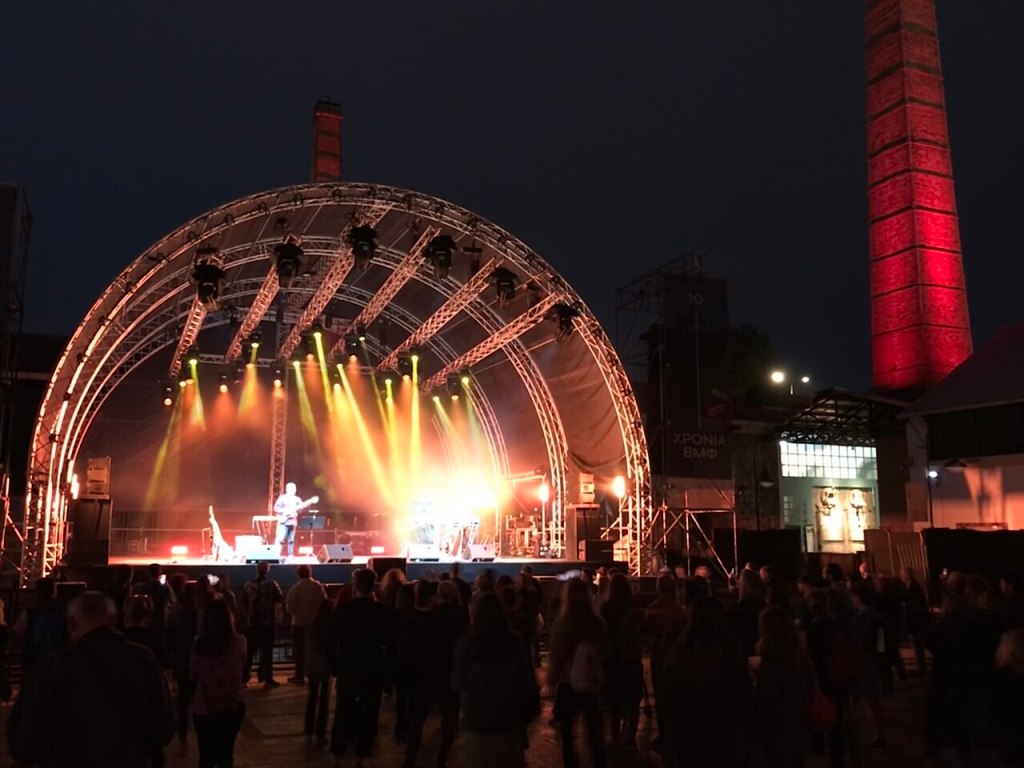WMHack is back in flesh after the pandemic that troubled us all. For the first time it was held in Athens, Greece, offering hackers, volunteers, foundation staff and Greek academics a unique chance to mingle, discuss, demonstrate, try out solutions and (of course..) have fun! Altogether about 150 people got together in the magnificent setting of Technopolis-Gazi in Athens, a place of particular historic and architectural value in itself, an industrial museum and a major cultural venue hosting numerous events throughout the year, at the same time many more remotely followed the event. Among the on-site participants were teaching staff and student volunteers from the Department of Informatics of the Ionian University, located in Corfu, Greece, who flew to Athens to attend and contribute to the success of the event.
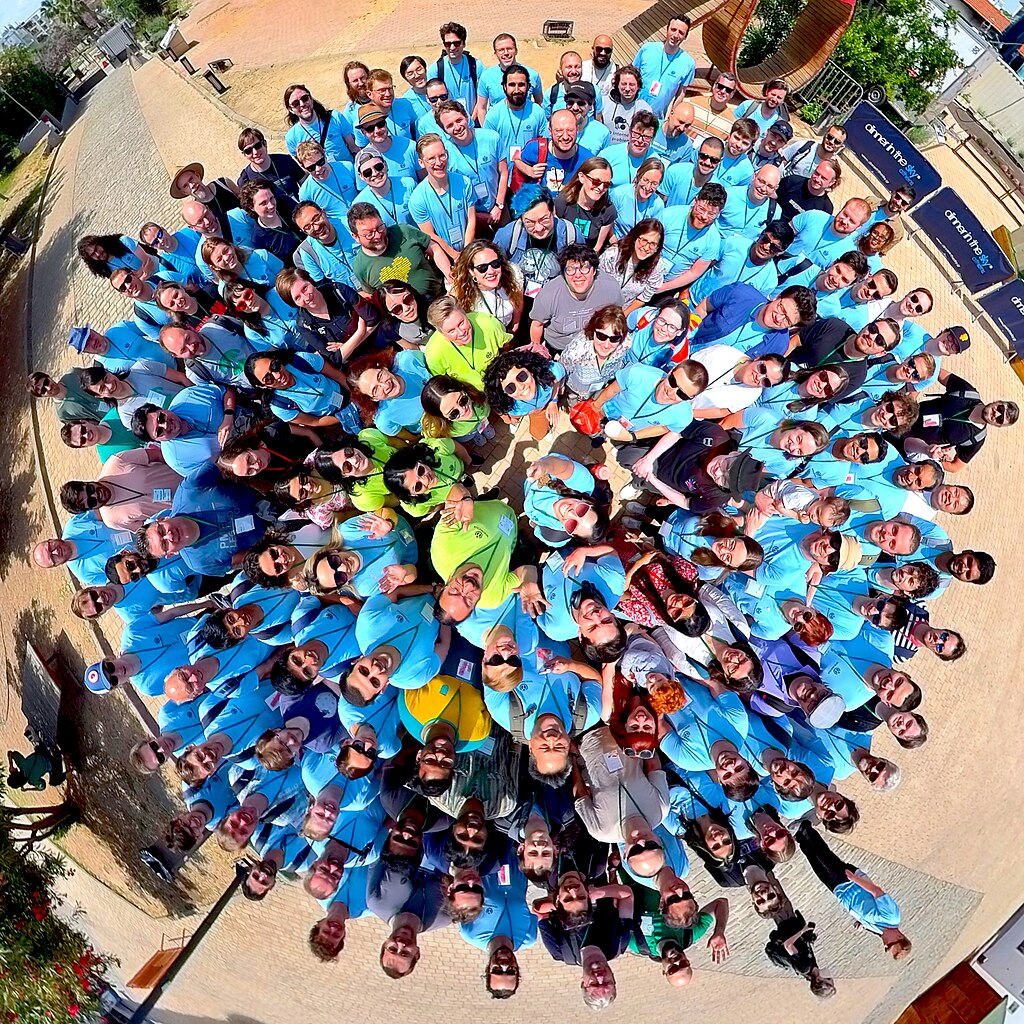
Credit: Fuzheado, CC BY-SA
Up to Day 0
The organising committee and volunteers worked hard for several days ahead of the event in order to convert void industrial spaces to a co-working space with all required amenities, ranging from (the obvious) work posts with electricity and network to a cozy quite place for overworked hackers.
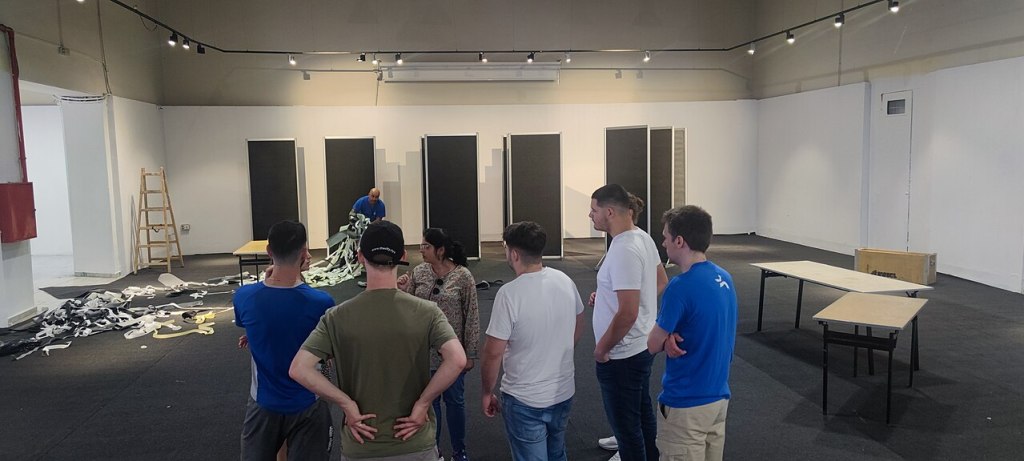
Credit: Magioladitis, CC BY-SA
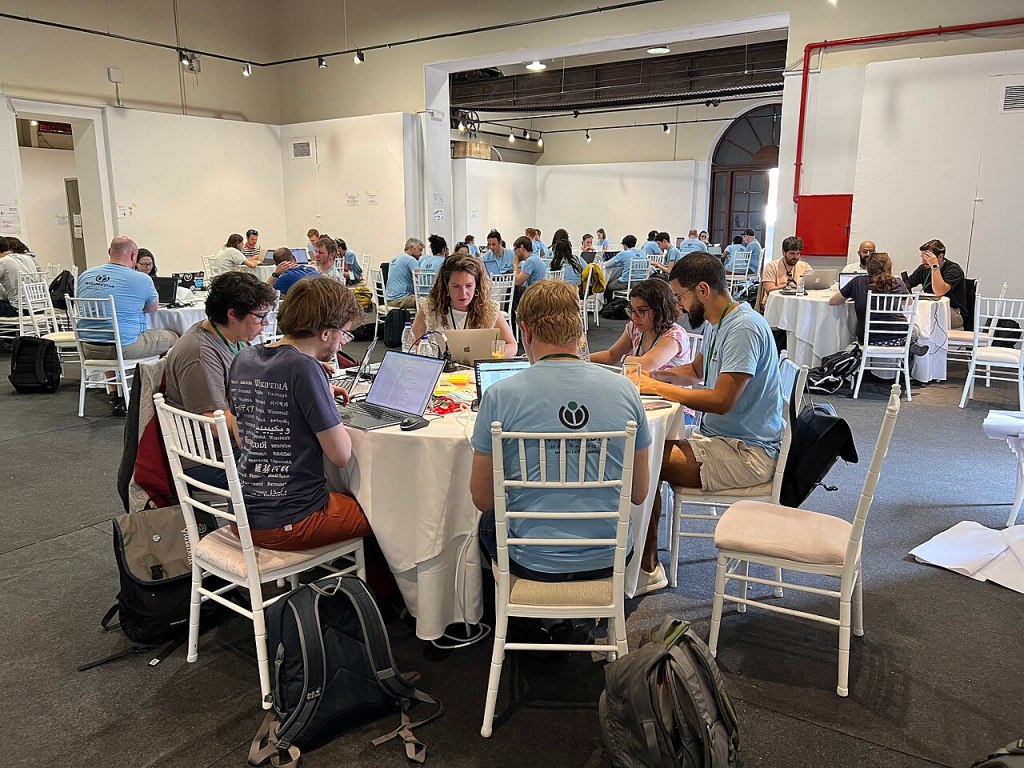
Credit: SSethi (WMF), CC BY-SA
Everybody finally got together for a welcome dinner on the evening of Thursday 18th of May, eager for the upcoming three day hackathon.
Day 1
The first day, Friday – May 19th, of the Hackathon commenced with a warm welcome and introduction by the organising team. Orientation was offered, volunteers on all required tasks were presented and representatives of the co-hosting Networks, Multimedia and Security Systems Laboratory of the Department of Informatics of the Ionian University welcomed everyone and shortly presented their contribution. Numerous hackers presented proposed projects attracting participants who were eager to contribute.
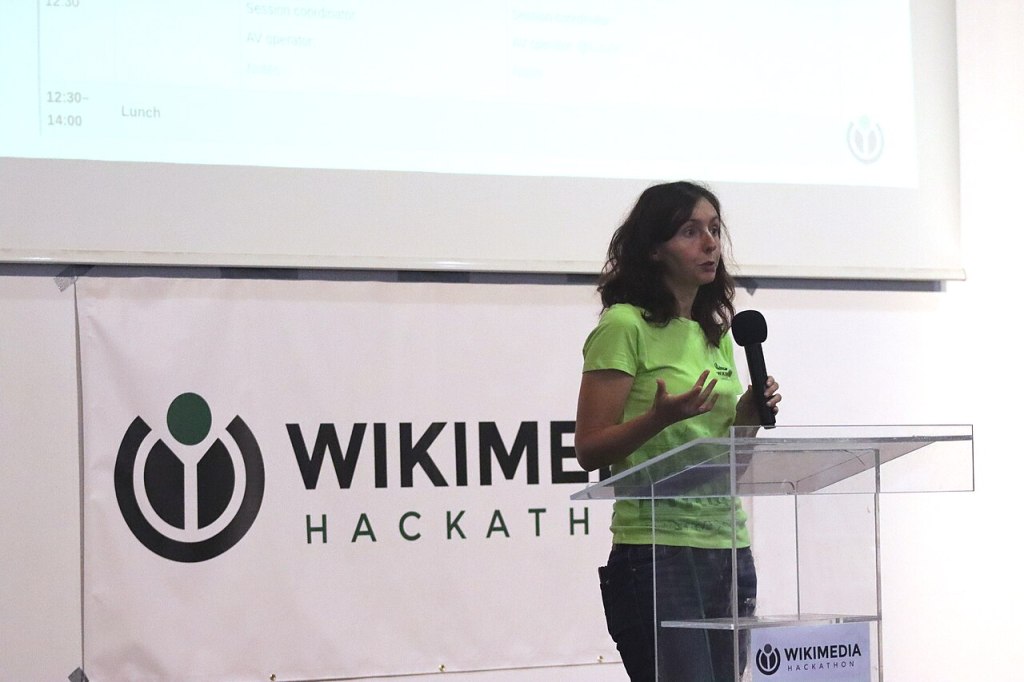
Credit: TiagoLubiana, CC BY
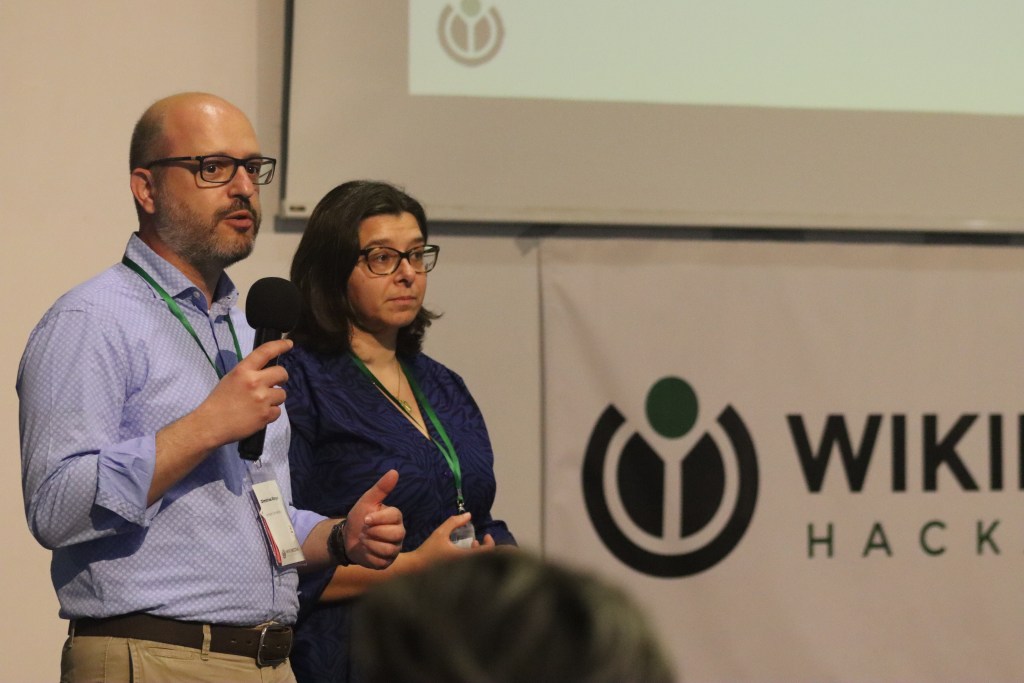
Credit: SSethi (WMF), CC BY-SA
Besides hacking, nine interesting sessions were held on Friday; do visit the corresponding Phabricator pages and therein the Etherpad notes and in most cases the slides provided.
- Ollie.Shotton_WMDE & Muhammad_Yasser_Jazirahly_WMDE presented
An Introduction to the Wikibase Rest API, an API that aims to to make working with wikidata easier in an OpenAPI compliant and more standardised way. - Gopa Vasanth & Jay Prakash offered an
Overview of technical areas & projects in Wikimedia's technical ecosystemmainly focusing on newcomers, especially ones interested in outreach programs and events. - Jon Robson guided interested hackers on how to
Get setup with MediaWiki and build a skin, explaining how cool and easy is to build a new skin and how more diversity increases innovation. - Lucas_Werkmeister_WMDE in
Cool new things in MediaWiki codeoffered an overview of interfaces and patterns that can be used in new MediaWiki code, which people might have missed. - Jelto shortly introduced attendants to the
current status of GitLab and GitLab CIat WMF, especially focusing on trust and security. - Roan Kattouw and Bàrbara Martinez showcased
Codex: the design system for Wikimediawhich offers a collection of resuable parts for building interfaces and aims to reduce frustration and enable faster design processes. - Elena Tonkovidova presented
Pixel tool for visual regression, a tool that streamlines UI testing workflows. - Ilias Sarantopoulos demoed an application named
WikiGPTthat the Machine Learning Team built as a proof of concept of what the future of Wikipedia could look like using natural language queries to interact with Wikipedia’s content. - Daniel Mietchen highlighted the need for
Documentation for Wikibase Cloudand urged participants to go through common use cases of Wikibase Cloud, which comes with a range of features yet not much documentation, and improve the corresponding documentation.
And these were only the sessions held on Day 1, which concluded with a (power-)dinner and an Accessible-to-All Hip Hop Party by Cool Crips.
Day 2
Day number two, Saturday – May 20th, of the Hackathon started for some with a number of sessions, for others it was just a follow-up of first night’s hacking.
- Daniel Mietchen kick-off sessions with
Schemas for medical entitiesreviewing existing entity schemas pertaining to medical entities like clinical trials and suggesting documentation of the workflows for generating, using & improving such entity schemas. - Niharika went over the changes that are coming, ragarding
IP Maskingand how volunteers and communities can prepare for them. - Vasanth Gopa presented
VideoCutTool, a tool to edit the videos on Wikimedia Commons on the fly. - Kosta Harlan facilitated a discussion on interests/concerns/possibilities/threats around
ChatGPT, large language models (LLMs), and machine learning tools. - Hay Kranen shared his experience of
What he's learned from being a Wikimedia tool dev for nine yearsand engaged with participants in a discussion about their own experiences and ideas on how we can improve the tools development process. - Reedy & Magioladitis presented
AutoWikiBrowser, a semi-automated MediaWiki editor designed to make tedious or repetitive editing tasks quicker and easier. - Martin Urbanec & Jon Harald Søby outlined how Community configuration currently works as well as the various ways configuration is done for the Wikimedia Incubator and advocated how
letting communities take control by JSON configurationwould benefit Growth. - Diego de la Hera & Nidia Hernandez presented
Web2Cit, a tool to collaboratively improve automatic citations in Wikipedia. - Bryan Davis presented
Toolhub, a tool that wants to be the best place for people to go to find out about helpful tools in the Wikimedia ecosystem, and discussed with participants what Toolhub does today, and what features its users would like to see added to it in the future. - Dreamy Jazz suggested
Using automated systems to recommend reviewers in the MediaWiki project - Arturo Borrero Gonzalez shared
Past, Present and outlined Future of Wikimedia Cloud Services (Toolforge and friends)
Hacking carried on till late and participants who remained in Technopolis enjoyed Vassilikos "The Grand Duet" with Giorgios Triantafillou.
Day 3
The last day of WMHack2023 featured a half day of sessions before Project Showcase & Closing.
- Slavina Stefanova demoed the
Toolforge build service, a buildpack-based deployment system (currently in beta), widely adopted by many cloud providers, which paves the way for a future push-to-deploy workflow, greatly simplifying app and tool deployment on Toolforge. - Kosta Harlan led an interactive workshop discussing techniques to
improve technical writingand leveling up abilities to explain, convince and inspire others. - Bartosz Dziewoński presented how to use
Patch demo to test or demonstrate patches outside of one's local dev environment (or without one). - Srishti Sethi & Karen Hernandez led a brainstorming session gathering
Best practices & ideas for implementing them for high-impact tools & their maintainers. - Lucas Werkmeister discussed the current state of (open) AI/ML models as well as approaches to
self-host available models via Cloud Services(PAWS, Toolforge, Cloud VPS; with likely a focus on Cloud VPS) and showcased outputs and limitations.
The day then moved on to Wikimedia Hackathon 2023 Project Showcase & Closing.
A splendid dinner at the roof top of Brown Acropol hotel offered everyone some time to destress, recollect and even plan next steps in a cosy setting.
For all of us, first time participants, coming from the Departmentof Informatics of the Ionian University this has been a unique and memorable experience. We’ve have the chance to integrate with the Wiki community at a level that we could never achieve remotely, get inspiration by the constructive vibe of the community and the openness and eagerness of all co-participants to help and share knowledge, and cultivate promising cooperations with prominent members of the wikimedia hacking community. We are proud and happy to have heard that our support and contribution also helped towards the success of this Hackathon.
Hope to get together soon again; till then happy hacking!
Dimitrios Ringas
— https://wmhack2023.github.io/about/
P.S.: Do share your experience and achievements on https://wmhack2023.github.io; all you need to do is pull request your text on https://github.com/wmhack2023/wmhack2023.github.io or reach out to wmhack2023@gmail.com.

Can you help us translate this article?
In order for this article to reach as many people as possible we would like your help. Can you translate this article to get the message out?
Start translation
